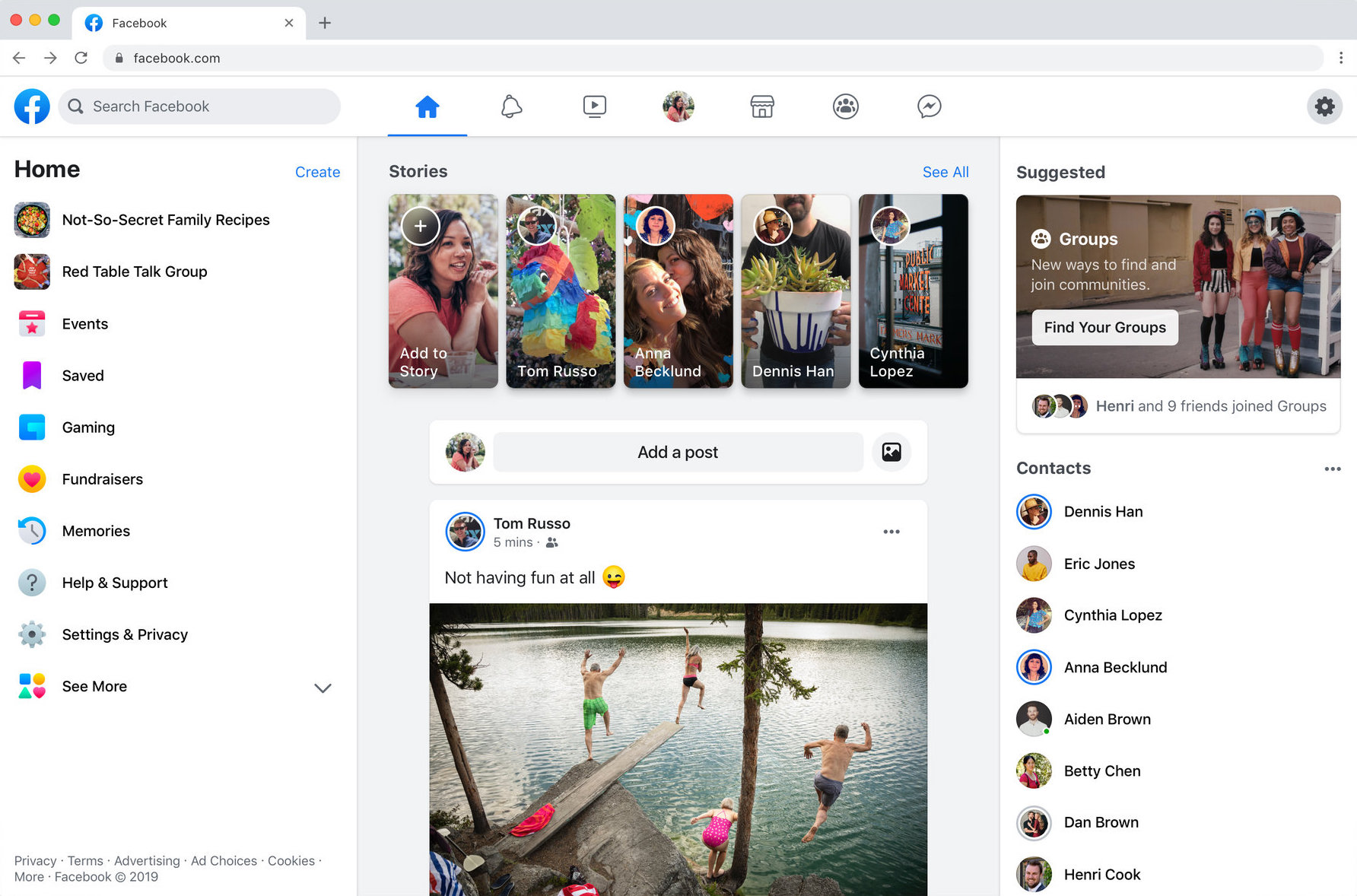You’re not crazy, you’re just a Loon
Google have been offered a nice pile of money to help with Loon, which is a project that takes the internet into the stratosphere. Sounds like nonsense future-babble, but it’s a real thing. It is essentially a bunch of solar powered low-orbit drones who provide internet for places in the world who have no/bad internet.
✅ Good because: giving more internet to more of the world is great, everyone should have internet.
❌ Bad because: just like with every ‘free’ service Google have, there is always another price to pay (data? yeah, probably data, yeah). And, once again, the word regulation starts to crown it’s annoying, ugly head out of the dirt. If a country has never really had proper internet, it probably doesn’t have proper regulation either. Lack of regulation = a lot of Google.
And thus begins the pivot
Facebook did a conference and announced their new design. They’ve finally moved away from that gross shade of blue they had before (good, because it was yuk). But more importantly, it has stronger emphasis on groups and stories - more private and temporary kinds of communication. Understandably, people are already shitting all over this. I think this is fine; Facebook are very hard to trust. Facebook are also, quite obviously, not just going to disappear. So any attempts they make to improve should not be immediately shot down. This tweet contains different arguments surrounding this issue, and I recommend you read it.

More investigations, more unscathed multinational tech giants
Quantcast are finally being investigated for breaching GDPR. That sounds great but who even are Quantcast? Exactly - no one outside the industry have heard of them but they are probably the most powerful and prominent ad network out there. They’re the ones who play a large part in ‘personalising’ all those ads you see all the time, and have developed AI for fancy advert trick we call real-time bidding.
So, no one really knows who they are, but they are busy developing highly accurate profiles of internet users sort of all the time, sort of in secret. How very un-transparent of you, Quantcast. I call that investigation time.
When Privacy and Hate have a messy, drunken party.
Suddenly, Facebook do not want these loud right-wingers on their platform because they are considered ‘dangerous’. Politics aside, muting those who incite hate is surely a good idea? And yes, this is a privacy issue: galvanising haters online makes them do hateful things offline, including invading the privacy of innocent people. This is exactly what happened when Alex Jones (InfoWars) used the power of Twitter to flat-out deny that the Sandy Hook school shootings happened. Alex Jones’s followers took it upon themselves to start harassing bereaved parents, forcing some of them to move house.
